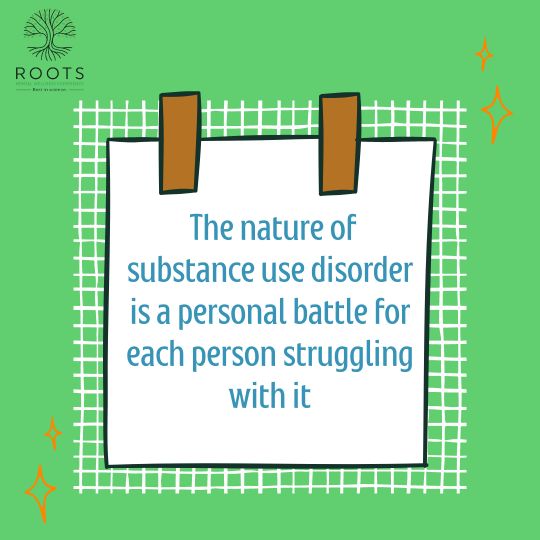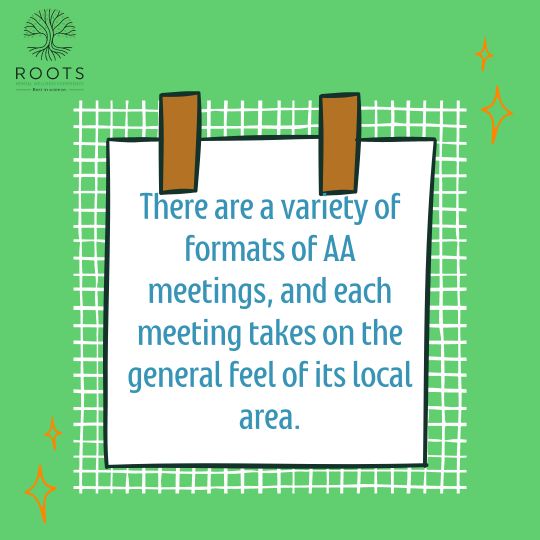The very personal nature of substance use disorder is a personal battle for each person struggling with it. Addiction looks different per individual, and often, the uncertainty of being in this struggle can be overwhelming and isolating. However, these personal stories can also help another person struggling with the same situation. This is where group therapy helps, like Alcoholics Anonymous or AA.
Considered the largest and oldest alcohol support group globally, AA is an international organization dedicated to helping its members overcome alcoholism. With thousands of individual groups worldwide, AA provides meetings to approximately 2 million people worldwide. The 12 steps of AA almost always come up in any conversation about recovery from addiction.
For today’s article, we’ll discuss what AA is, its 12 steps program, and the benefits of peer support groups.

What Is AA?
Alcoholics Anonymous is “a fellowship of people who come together to solve their drinking problem.” This is achieved through volunteers who used to struggle with alcohol use disorder sharing their stories and experiences to strengthen each other. The AA program, commonly referred to as the 12 steps program, provides its participants with a framework for self-examination to stay on their path to recovery and long-term sobriety.
Although AA states that its program has spiritual elements, it is not a religious organization. They leave these spiritual elements to the individual, and it is up to them to decide what it means. AA is not affiliated with any religious body. Members of all religions, agnostics and atheists alike, are welcome to participate.
It was formed for people with alcohol use disorder but has branched out to assist people struggling with other disorders. Alcoholics Anonymous’ approach is now being used to offer mutual aid to those who wish to recover from other substance use disorders and other compulsive behaviors like binge eating, sex, hoarding, gambling, etc.

How Did AA Start?
AA started in Akron, Ohio, United States, back in 1935. It was founded by Bill Wilson and Bob Smith, both of whom have struggled with alcohol use disorder. With the help of members of the non-denominational Christian movement, The Oxford Group, both men were able to gain and manage their sobriety. Wilson and Smith believed that mutual aid and faith in a higher power could help a person break the cycle of addiction. This became the key tenets of Alcoholics Anonymous when it broke away from The Oxford Group a few years later.
What Is The 12-Step Program?
The 12 steps of AA are based on the founders’ experiences. People who want to join this mutual help group are advised to read the Big Book, which serves as the organization’s handbook. The book provides recovery resources, stories of inspiration to help people on their journey to recovery, and the 12 steps program.
This program discusses how to recover from alcohol use disorder and prevent and cope with triggers. It is often introduced in an inpatient rehab setting and is used in post-treatment recovery programs. The 12 steps of alcoholics anonymous remain applicable in various situations, and the program can also help in scenarios unrelated to substance abuse.

What Are The 12 Steps Of AA?
What are the 12 steps? Here are the foundational tenets of the AA program:
- We admitted we were powerless over alcohol – that our lives had become unmanageable.
- Came to believe that a power greater than ourselves could restore us to sanity.
- Made a decision to turn our will and our lives over to the care of God as we understood him.
- Made a searching and fearless moral inventory of ourselves.
- Admitted to God, to ourselves, and to another human being, the exact nature of our wrongs.
- We’re entirely ready to have God remove all these defects of character.
- Humbly asked him to remove our shortcomings.
- Made a list of all persons we had harmed and became willing to make amends to them all.
- Made direct amends to such people wherever possible, except when to do so would injure them or others.
- Continued to take personal inventory and, when we were wrong, promptly admitted it.
- Sought through prayer and meditation to improve our conscious contact with God as we understood him, praying only for knowledge of his will for us and the power to carry that out.
- Having had a spiritual awakening as the result of these steps, we tried to carry this message to alcoholics and to practice these principles in all our affairs.
The spiritual aspect of the 12 steps of AA may be considered problematic as it asks members to place their lives in the hands of a ‘higher authority.’ It is mentioned in the handbook that “newcomers are not asked to accept or follow these Twelve Steps in their entirety if they feel unwilling or unable to do so.” This means that the 12-step program can be used as a foundation for recovery even if complete adherence to the steps is not applicable.
What Can I Expect From AA?
What are the 12 steps of alcoholics anonymous for first-timers? Here are some notes on the types and formats of a typical AA meeting.
Types Of AA Meetings
There are a variety of formats of AA meetings, and each meeting takes on the general feel of its local area. Meetings usually have members talk about their experiences with alcoholism and how it impacted their lives vis-à-vis how they live today.
AA meetings are typically listed as either an open or closed meeting. As the name suggests, an open AA meeting is available to anyone interested in Alcoholics Anonymous’s 12-step program. People who do not have problematic alcohol use may attend as observers. On the other hand, closed meetings are for members only or those with a problematic relationship with alcohol and desire to recover from it.
AA members conduct both types of meetings. Additionally, it is often requested that participants keep the discussion to matters related to recovery from alcohol addiction during meetings.

Formats Of AA Meetings
- Discussion
In this format, an AA member serving as the ‘leader’ or ‘chair’ opens the gathering and selects a topic to discuss. Often, these topics are based on AA literature, such as Alcoholics Anonymous (Big Book), Twelve Steps and Twelve Traditions, As Bill Sees It, Daily Reflections, AA Grapevine, and more.
- Speaker
The speaker format means one or more members are selected beforehand to serve as a speaker by sharing what is described in the Big Book as telling ‘what we were like, what happened, and what we are like now.’ Some groups prefer members selected as speakers to have a minimum period of continuous sobriety. This generally depends on the meeting’s guidelines determined by the group beforehand. Usually, speaker format meetings are open meetings.
- Beginners
This session format is for helping newcomers and is usually led by a member who has been sober for a while. This meeting format may also follow a discussion format or focus on Steps One, Two, and Three.
- Twelve Steps, Twelve Traditions, or The Big Book
The 12 steps of AA remain to be the foundation of personal recovery, so many groups allot more weekly meetings to study each step. It is common for groups to read aloud some highlights or key ideas from the Twelve Steps and Twelve Traditions or the Big Book.
How Much Does AA Cost?
Joining an AA group is free for anyone who wants to commit to a sober life. Regular attendance entitles an individual to be considered an AA member with no regular fees required to be paid.

What Are The Benefits Of AA?
When combined with other programs dealing with addiction, AA membership improves the likelihood of long-term sobriety and abstinence from substances. Studies have shown that people with alcohol addiction who were part of rehabilitation treatment and peer support groups like AA had better chances of staying substance-free.
Other benefits of joining the 12 steps program of AA are
- AA meetings are free.
- A person is under no obligation to join.
- Participants can go as often as they wish to any meeting or location.
- There are no unnecessary obligations or intrusive questions.
- You can keep your anonymity.
- Meetings are open to everyone regardless of race, religion or beliefs, social status, etc.
- Joining AA creates a network of support.
Get Started On Your Recovery From Alcohol Addiction
If you are unsure about your relationship with alcohol, try joining an open AA meeting in your area. If you have trouble finding an AA meeting, we at Roots Through Recovery are here to help.
Here at Roots, we understand the unique need to provide superior support for alcohol and other substance addiction. We stay away from a cookie-cutter view of creating treatment plans for our patients, and we approach your recovery based on your specific situation, needs, and goals.
Embrace the culture of wellness with us at Roots, located at the heart of Long Beach–a city that offers a diverse community for healing the mind, body, and spirit. Come visit us at 3939 Atlantic Ave, Suite 102, Long Beach, CA 90807, or call (866) 766-8776 for immediate assistance.





1 thought on “What Are The 12 Steps Of AA And What You Should Know About It”
I saw something on your website that was broken. I am a leading IT expert and I would like to volunteer my time to fix your site. Would that be ok?
Feel free to call me or text me 1 (205) 383-3754
Damian